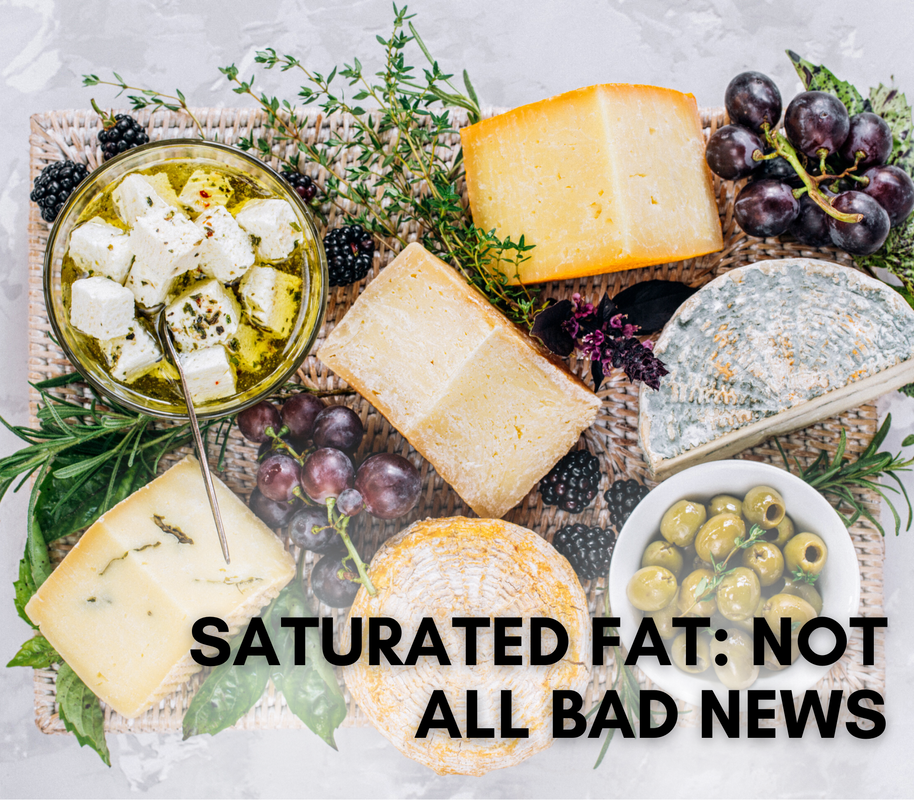- Home
-
Qualifications
- Diploma in Nutrition and Health Coaching
- Womens Health and Wellness Coach Certification
- Certified Coaching Professional Program
- Diploma in Coaching for Lifestyle & Wellbeing Management
- Holistic Wellness Coaching Program
- The Ultimate Triple Qualification
- Health Coaching Electives
- Wellness Coaching for Professionals
- Coach Gap Training
- Professional Certificate in Meal and Menu Planning
- Accreditation, Registration & Insurance Options
- Degree & Diplomas
- Short Courses
- Testimonials
- Enrol
- FAQs
- About
- Contact
- Login
- Things We Do
|
Want to know the whole truth, nothing but the truth? For decades now we have been told to lower our saturated fat to avoid heart disease and obesity from the extra energy intake. The call has seen the rise of not only extensive educational campaigns in the name of our health, but also a multi-billion dollar industry built around low-fat/fat-free/reduced-fat products and weight loss strategies, employing such products to meet the goals of weight loss seekers and the health conscious. However, reviews of research have now highlighted the lack of understanding around specific saturated fatty acids, which in turn has uncovered the reality that potentially not all saturated fat was bad for us - shock horror! How did saturated fat get such a bad wrap? The push against dietary saturated fat started in the 1950’s and was largely based on the belief that dietary fat, in particular saturated fat, raised cholesterol which in turn lead to negative health outcomes. Our understanding of the role of cholesterol began to improve which lead to the simple catch cry of ‘too much ‘bad fat’ = heart disease’, moved to ‘too much ‘bad fat’ = high cholesterol’. Around the 1970’s this evolved to ‘too much saturated and trans-fats = high VLDL and LDL cholesterol. Nonetheless, world Dietary Guidelines in Britain, Australia, Europe, New Zealand and more followed the leader, the United States, in suggesting that we should all be encouraged to consume less dietary fat. Gary Taubes (2001) makes the point that this in turn appears to have led to an increased consumption of carbohydrates. The problem with this is that research suggests swapping dietary fat for carbohydrates yields no benefits and in some cases increases health risks. Now this is not to suggest carbohydrates are bad, just that when you tilt the scales by removing something and replace it with something else it might be the altered ratio that in itself causes other issues. Carbohydrates are essential to good health, but like all things are still best in a balance. Do I still need to avoid saturated fat? So, was the hype worth it? Do we still need to avoid foods high in saturated fat? Are the messages still valid? Has any of it worked? What is our current understanding and what implications does this have on our eating patterns and food choices? Increasingly, research is uncovering that not all saturated fats (SFAs) are equal, leading us to the belief that the classification of fatty acids based on double bonds (saturation) is no longer sufficient for describing their effect on health. Of course, we must now ask the question about how relevant global recommendations for dietary fat intake are and if they need to be reconsidered. The Report on Fats and Fatty Acids (2010) from the Food and Agriculture Organization of the United Nations (FAO) suggests: “… that individual fatty acids within each broad classification of fatty acids may have unique biological properties and health effects. This has relevance in making global recommendations because intakes of the individual fatty acids that make up the broad groupings will differ across regions of the world depending on the predominant food sources of total fats and oils.” pp 9, FAO, 2010. What should we know about saturated fat & health? Recent studies have found that fats with carbon chains between 12 and 16 increase cholesterol, whereas those over 18 don’t seem to cause the same health issues, for example stearic acid and oleic acid (see table below). It appears that myristic acid (C14:0), followed by lauric acid (C12:0) and palmitic acid (C16:0) are the ‘less desirable’ fats (refer Table below). You'll note that some foods contain a number of different types of saturated fatty acids, for example butter, which further complicates research findings in regards to the ‘healthfulness’ of a food with large amounts of saturated fat. Table 3. Saturated fatty acid sources
* Found to raise plasma lipoprotein fractions ** No effect on plasma lipoproteins What does the research say? Consider this: we are generally eating less fat (though it’s argued by some still more than the ‘recommendations’), and while the rate of deaths from heart disease has dropped in many countries, the incidence has not. Logically, medical intervention may account in part for the decline in mortality rates in this case; however, there are some who suggest that the incidence of heart disease has not reduced because we have ‘thrown the baby out with the bath water’. That is, we have not only reduced the consumption of dietary saturated fats but also of PUFAs (polyunsaturated fatty acids) and in some cases swapped SFAs for carbohydrates, which appears ineffective. To eat or not to eat? We know that SFAs have different effects on different health markers; some SFAs effect cholesterol, others don’t; some increase the risk of CVD others don’t. How do we know if a food is good for us? If you look at the studies you’ll find pros and cons for fatty foods such as red meat and dairy. Stearic acid (C18) found in reasonably high levels in meat (and dairy) (refer Figure 3) doesn’t appear to raise blood lipoproteins. However, consuming too much meat may pose a health issue due to its potential to raise the risk of certain cancers (ACS, 2006; Donaldson, 2004). "Dairy foods contributed to the intake of 15% of the total dietary saturated fatty acids and 10% to 16:0 and 18:0 (stearic) acid. Beef consumption accounted for 23% of the total saturated fat intake, highlighting the difficulty in ascribing a causal outcome to a single food group.” German et al, 2009, pp193. We may also need to consider that other nutrients and compounds in foods can impact positively and negatively on our health. The reality is that most foods have what you could almost call a ‘dose limit’. In addition, it can be argued that the impact of compounds such as SFAs in foods such as meat may be altered by cooking, other foods ingested at the time and so on. Nonetheless, current science suggests going easy on the red meat. Quite simply ‘everything in moderation’ and focus on a variety of nutrient-dense whole foods! What about going low-fat? Low-fat strategies have been around for a considerable period of time and increasingly it is being questioned if they are really working. Evidence in some cases suggests that low-fat diets have been ineffective strategies in the fight against many health issues (FAO, 2010). FAO (2010) point out that studies which compared isocaloric diets (moderate carbohydrate and fat with controlled percentages of energy from macronutrients) to diets with different percentages of fat, (in predominantly overweight populations in developed countries), found that a higher percentage of energy from fat could result in greater weight loss than in those on low-fat diets. Surely, if you are eating so much of a food that it is causing you health issues the obvious action to take is to address that, rather than beating yourself up and then switching to man-made products that cause their own health problems? Address imbalance, by focusing on a return to balance. Eat less of the foods that do you harm, switch them for foods you are lacking in and which will nourish you. What's the take-home message? Simple! Eat a wide array of quality foods, that aren't fiddled with too much. Don't eat food based on guilt, enjoy your food as nature intended! And, remember sometimes science has to catch up to logic! COURSES THAT YOU MIGHT LIKE TO CHECK OUT! You can take a short course is Super Nutrition or jump in boots and all to the Nutrition, Health & Wellness Coach Certification program so you can register, get insurance and work as a qualified nutrition and health coach. Or, if you're a PT why not add Meal and Menu Planning to your portfolio of services! AuthorLeanne Cooper, Founder and Director Well College Global.
0 Comments
Leave a Reply. |
AuthorsBev Whyfon; Bev's Healthy Food Archives
July 2024
Categories
All
|
|
CONNECT WITH US
|
- Home
-
Qualifications
- Diploma in Nutrition and Health Coaching
- Womens Health and Wellness Coach Certification
- Certified Coaching Professional Program
- Diploma in Coaching for Lifestyle & Wellbeing Management
- Holistic Wellness Coaching Program
- The Ultimate Triple Qualification
- Health Coaching Electives
- Wellness Coaching for Professionals
- Coach Gap Training
- Professional Certificate in Meal and Menu Planning
- Accreditation, Registration & Insurance Options
- Degree & Diplomas
- Short Courses
- Testimonials
- Enrol
- FAQs
- About
- Contact
- Login
- Things We Do



 RSS Feed
RSS Feed
